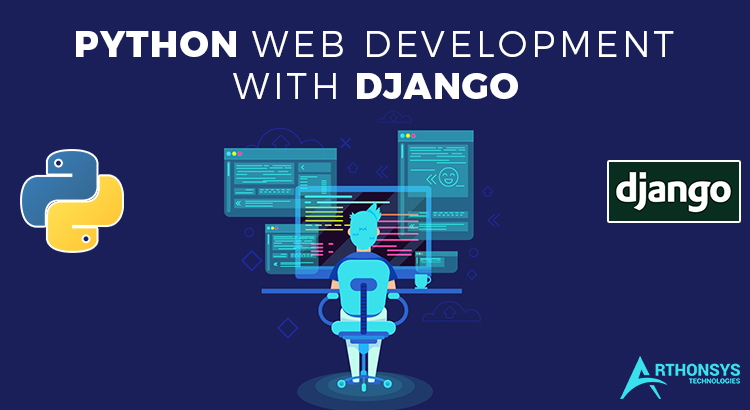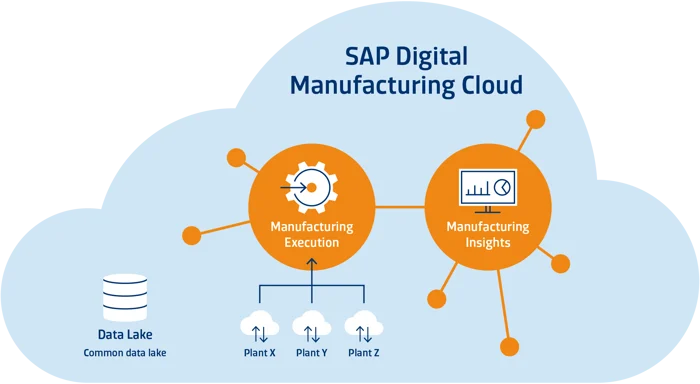“Python Coding Challenges: Tips, Strategies, and Exercises for Success”

“Unlock success in Python coding interviews with expert strategies, valuable tips, and unique exercises. Enhance your skills and excel in technical interviews with our comprehensive guide to mastering Python coding challenges. Get ready for success in every coding interview scenario!”
Here’s a suggested outline for your blog post:
A Brief Overview of the Significance of Coding Challenges in Python:

Python coding challenges are significant for skill development, algorithmic thinking, language proficiency, interview preparation, versatility, and community engagement. They serve as a valuable tool for both beginners looking to learn programming and experienced developers seeking to sharpen their problem-solving abilities in the context of Python.
Python, known for its simplicity and readability, has become a popular choice for coding challenges for several reasons:
- Problem-solving Skills: Coding challenges in Python provide an excellent platform for developers to enhance their problem-solving skills. Python’s syntax, combined with its diverse set of libraries and frameworks, allows developers to approach problems in various ways, fostering creativity and critical thinking.
- Algorithmic Thinking: Python coding challenges often involve algorithmic problem-solving. Working through these challenges helps developers build a solid foundation in algorithmic thinking, enabling them to devise efficient and optimized solutions for a wide range of problems.
- Language Proficiency: Python’s clean and concise syntax makes it an ideal language for expressing complex ideas in a straightforward manner. Coding challenges allow developers to improve their proficiency in Python, exploring its features and functionalities in the process.
- Preparation for Technical Interviews: Many technical interviews, especially in the software development field, involve coding challenges. Practicing Python coding challenges prepares individuals for these interviews by familiarizing them with the types of problems they might encounter and encouraging them to think critically under time constraints.
- Versatility: Python is a versatile language used in various domains, including web development, data science, machine learning, and more. Coding challenges provide exposure to different aspects of Python, allowing developers to apply their skills across a broad spectrum of projects and industries.
- Community Learning: Participating in Python coding challenges often involves engaging with a vibrant community of developers. This community aspect fosters learning through collaboration, allowing individuals to share insights, discuss solutions, and learn from diverse perspectives.

Importance of practicing coding challenges for skill development
Practicing coding challenges is immensely important for skill development in several key ways:
- Problem-Solving Skills: Coding challenges present a variety of problems that require logical thinking, analytical reasoning, and creative problem-solving. Regularly engaging with such challenges enhances your ability to break down complex problems into manageable parts and devise efficient solutions.
- Algorithmic Thinking: Many coding challenges involve the application of algorithms to solve problems. Through practice, you develop a deeper understanding of various algorithms and data structures, which is essential for writing efficient and optimized code.
- Programming Language Proficiency: Coding challenges provide an opportunity to apply your knowledge of programming languages in a practical context. For example, if you’re practicing coding challenges in Python, you not only strengthen your problem-solving skills but also become more proficient in using Python’s syntax, libraries, and built-in functions.
- Coding Efficiency: As you work on coding challenges, you’ll find yourself looking for more efficient ways to solve problems. This leads to the development of coding habits that prioritize efficiency, readability, and maintainability. These are crucial skills in a professional setting where writing clean and efficient code is essential.
- Time Management: Many coding challenges have time constraints, particularly in technical interviews. Practicing under time pressure helps you improve your ability to manage time effectively and make strategic decisions about how to allocate your time across different parts of a problem.
- Adaptability: Coding challenges come in various difficulty levels and cover a wide range of topics. This diversity helps you become adaptable and capable of tackling different types of problems and learning new concepts. This adaptability is a valuable skill in a fast-evolving tech landscape.
- Preparation for Technical Interviews: Coding challenges are a common component of technical interviews. Regular practice not only enhances your technical skills but also familiarizes you with the types of problems commonly encountered in interviews. This preparation can significantly boost your confidence during the interview process.
- Building a Portfolio: As you solve coding challenges, you can document your solutions and build a portfolio of your work. This portfolio serves as a tangible representation of your coding abilities and problem-solving skills, which can be shared with potential employers or showcased on platforms like GitHub.
- Community Engagement: Many coding challenges are part of online coding platforms or communities. Engaging with these platforms exposes you to different perspectives and solutions, fostering a sense of community learning. You can learn from others, share your insights, and participate in discussions, contributing to a collaborative learning environment.
- Career Advancement: Strong coding and problem-solving skills are highly valued in the tech industry. As you consistently practice coding challenges, you become a more competitive candidate for job opportunities, internships, and advancement within your current role.
Mention of the popularity of coding challenges in technical interviews
In summary, practicing coding challenges is a multifaceted approach to skill development. It hones your problem-solving abilities, strengthens your understanding of algorithms and data structures, improves your proficiency in programming languages, and prepares you for technical interviews and real-world coding scenarios. It’s a foundational step for anyone looking to excel in a programming or software development career.
The popularity of coding challenges in technical interviews has surged in recent years, becoming a standard evaluation method for assessing a candidate’s programming and problem-solving skills. This trend is driven by several factors:
- Objective Assessment: Coding challenges provide a structured and objective way to evaluate candidates. Unlike traditional interviews that rely heavily on subjective judgments, coding challenges offer a quantifiable measure of a candidate’s ability to write efficient, error-free code.
- Real-world Simulation: Technical interviews aim to simulate real-world problem-solving scenarios. Coding challenges reflect the challenges developers face in their day-to-day work, making them a relevant and practical evaluation method for technical roles.
- Algorithmic and Problem-solving Skills: Employers are increasingly valuing candidates with strong algorithmic thinking and problem-solving skills. Coding challenges offer a direct assessment of a candidate’s ability to devise efficient solutions, which is crucial for success in technical roles.
- Widespread Industry Adoption: Many tech companies, from startups to tech giants, have embraced coding challenges as a crucial part of their hiring process. This industry-wide adoption has contributed to the standardization of technical interviews, making coding challenges a common expectation for job candidates.
- Efficiency in Evaluation: Coding challenges streamline the evaluation process. They allow interviewers to quickly assess a candidate’s coding proficiency, algorithmic understanding, and problem-solving abilities, making it easier to compare candidates and make informed hiring decisions.
- Leveling the Playing Field: Coding challenges provide a standardized evaluation method that helps level the playing field for candidates with diverse backgrounds. By focusing on practical skills, they offer an inclusive assessment approach that goes beyond traditional academic qualifications.
- Identification of Strong Performers: Coding challenges serve as a reliable indicator of a candidate’s capabilities. Those who excel in coding challenges often demonstrate a strong foundation in computer science concepts, adaptability, and the ability to think critically under pressure.
- Tech Community Influence: The influence of coding communities and online platforms has grown significantly. Many candidates actively participate in coding challenges on platforms like LeetCode, HackerRank, and others, creating a culture where the ability to tackle such challenges is not only valued but celebrated.
- Time-efficient Screening: Given the time constraints in the hiring process, coding challenges offer an efficient way to screen candidates. They allow employers to quickly identify individuals with the technical skills required for the job, saving time in the overall recruitment process.
In summary, the popularity of coding challenges in technical interviews is a reflection of their effectiveness in evaluating practical skills, problem-solving abilities, and algorithmic thinking. As the tech industry continues to evolve, coding challenges are likely to remain a prominent and integral part of the hiring landscape. Candidates who invest time in practicing these challenges position themselves well for success in technical interviews and in their careers.

Benefits of Python Coding Challenges
Engaging in Python coding challenges offers numerous benefits that contribute to skill development, problem-solving capabilities, and overall proficiency in programming. Here are some key advantages:
- Skill Enhancement: Python coding challenges provide a platform for continual skill improvement. Regularly facing diverse problems helps you become proficient in Python’s syntax, libraries, and features, contributing to a deeper understanding of the language.
- Algorithmic Thinking: Coding challenges often require algorithmic solutions. Practicing these challenges helps you develop strong algorithmic thinking skills, enabling you to approach complex problems with a systematic and efficient mindset.
- Problem-Solving Abilities: Python coding challenges are designed to present a variety of problems, ranging from simple to complex. Solving these challenges enhances your problem-solving abilities, teaching you to break down problems into smaller, manageable tasks and design effective solutions.
- Interview Preparation: Many technical interviews, especially in the software development field, involve coding challenges. By practicing Python coding challenges, you prepare yourself for the types of problems commonly encountered in interviews, boosting your confidence and performance.
- Versatility of Python: Python is a versatile language used in various domains, including web development, data science, machine learning, and more. Coding challenges allow you to explore different aspects of Python, making you well-rounded and adaptable to various projects and industries.
- Efficient Code Writing: Python coding challenges often emphasize writing clean, concise, and efficient code. This practice encourages you to develop coding habits that prioritize readability, maintainability, and performance—an essential aspect of professional software development.
- Learning Python Libraries: Coding challenges may involve the use of various Python libraries and modules. This exposure allows you to become familiar with and leverage the power of libraries such as NumPy, Pandas, or Django, depending on the nature of the challenges.
- Community Engagement: Many coding challenges are part of online coding platforms where you can engage with a vibrant community of developers. Sharing solutions, discussing approaches, and learning from others’ perspectives contribute to a collaborative learning environment.
- Continuous Learning: Python coding challenges are diverse and often cover a wide range of topics. Engaging with these challenges promotes continuous learning, keeping you updated on the latest Python features, best practices, and programming techniques.
- Portfolio Development: As you solve coding challenges, you can document and showcase your solutions in a portfolio. This portfolio becomes a tangible representation of your problem-solving skills, coding proficiency, and versatility, which can be valuable when applying for jobs or internships.
- Preparation for Coding Competitions: If you’re interested in competitive programming, Python coding challenges provide an excellent arena for honing your skills. Many competitive programming platforms support Python, and participating in challenges prepares you for coding competitions.
In summary, the benefits of Python coding challenges are vast, encompassing skill enhancement, algorithmic thinking, problem-solving abilities, interview preparation, and a deeper understanding of Python’s versatility. Consistent practice in coding challenges not only makes you a more proficient Python developer but also prepares you for success in various aspects of your programming journey.
See Also:
- Unveiling the Distinctions: Web Crawler vs Web Scrapers
- How to Make Money with Web Scraping Using Python
- How to Type Cast in Python with the Best 5 Examples
- Best Variable Arguments in Python
- 5 Best AI Prompt Engineering Certifications Free
- 5 Beginner Tips for Solving Python Coding Challenges
- Exploring Python Web Development Example Code
- “Python Coding Challenges: Exercises for Success”





